Beating over 100,000 times a day and pumping almost 5 litres of blood every minute, the cardiovascular system carries blood filled with oxygen, nutrients, hormones and other nutrients essential for every cell of our body. It also unladen the waste products of metabolism. Given the extensive function, no rest and constant pressure it is a miracle the heart performs so well.
This incredible organ can be brought down by poor diet and lack of exercise, excessive smoking, bacterial or viral infection, unlucky genes, and more. While heart diseases are deadly, they can be easily prevented.
World Heart Day: History and Purpose
World Heart Day (WHD) (https://world-heart-federation.org/world-heart-day/), celebrated on the 29th of September, initiated by the World Heart Federation (WHF), stands out as one of the most successful global campaigns against cardiovascular diseases. It was conceived by Antoni Bayés de Luna during his WHF presidency (1997-1999) to address the growing burden of heart disease and stroke, especially in developing nations. World Heart Day serves as a vital platform to elevate cardiovascular health on the global health agenda.
The Significance of World Heart Day and Importance of Heart Health Awareness
Cardiovascular Diseases(CVD) account for over 17.7 million deaths worldwide. For the Indian population, it accounts for 272 per 100000 population in India which is much higher than that of the global average of 235 (Kumar & Sinha, 2019). However, they are often second in priority to communicable diseases in healthcare priorities. WHD addresses this issue by shining a spotlight on heart health. It emphasises the risk factors, and addresses healthy living, making Health a priority. It dedicates an entire day to raising awareness, engaging the media, informing the public, influencing policymakers, and involving healthcare professionals in advocating for prevention efforts. The WHF, with its extensive network of foundations and national societies worldwide, is well-suited to lead this initiative. Ultimately, World Heart Day empowers countries to scale up their cardiovascular disease prevention efforts within a united, global framework.
What is Heart Health?
Heart health refers to the overall well-being and proper functioning of the heart and circulatory system. It consists of various aspects of cardiovascular health and is essential for maintaining good overall health. A healthy heart is vital for pumping blood efficiently throughout the body, providing oxygen and nutrients to various organs and tissues.
Types of Cardiopathies.
An umbrella of diseases falls under this category. The diseases that commonly fall under this category are
- Angina- pain due to decreased blood flow to the heart
- Arrhythmia- abnormal heart rhythm
- Congenital Heart Defect- abnormalities with heart function or structure present since birth.
- Coronary Artery Disease (CAD)- plaque build-up in the arteries that causes reduced blood flow to heart muscles
- Cardiomyopathy- thickening or weakening of the heart muscle affecting its function.
- Heart Infections- when bacteria, viruses or fungi enter your blood and infect your heart.
Understanding The Key Risk Factors
The risk factors for heart disease fall under two main categories: controllable and uncontrollable factors
Risk factors under your control:
- Smoking
- Sedentary lifestyle factors
- Obesity
- Diabetes
Risk Factors you cannot control:
- Family History
- Genetics
- Ageing
Although you cannot control these factors, they are easily manageable and preventable.
Is Ageing a major issue in Cardiovascular diseases?
Ageing is associated with a progressive decline in physiological function leading to an increased risk of cardiovascular diseases. The prevalence of CVD has also been shown to increase with age, in both men and women, including the prevalence of atherosclerosis, stroke and, myocardial infarction. Cardiac functioning is largely dependent on mitochondrial production of energy. Mitochondrial dysfunction is a hallmark of ageing being a major contributor to cardiac problems. The mitochondria are susceptible to DNA damage due to Reactive Oxygen Species(ROS) produced as a by-product of ATP production. Rodgers et al., 2019 (Italics) in their review Cardiovascular Risks Associated with Gender and Ageing explain age as an independent risk factor for heart diseases. (Rodgers et al., 2019)
How to Recognize the symptoms?
The symptoms are usually associated with specific conditions that cause CVD. The most common symptoms are:
- pain or pressure in the chest
- pain or discomfort in the arms, left shoulder, elbows, jaw, or back
- Shortness of breath
- Nausea and fatigue
- Dizziness
- Cold sweats
- Swollen limbs
- High blood pressure
- Ageing
How are Heart Diseases Diagnosed?
Early diagnosis helps in lowering the complications of the disease. Heart diseases are diagnosed by
Physical and Blood Tests
The doctor will ask about your symptoms and family medical history. S/He will also assess your heart rate and blood pressure. Blood tests for cholesterol and C-reactive Protein (CRP) test, measure inflammation, to evaluate your risk for heart disease.
Non-Invasive Tests
Non-invasive tests are tests that don't physically enter the skin. Depending on the results of your physical tests, the doctor may order additional tests such as:
- electrocardiogram (EKG)
- echocardiogram
- stress test
- carotid ultrasound
- Holter monitor
- tilt-table test
- CT scan
- heart MRI
Invasive Tests
If the Non-invasive tests aren’t enough, in case of complications and severity of the condition, the doctor might order invasive tests. These tests include:
- cardiac catheterisation
- coronary angiography
- electrophysiology
How can you prevent Heart Disease?
Prevention of heart disease involves making lifestyle choices and adopting habits that significantly reduce your risk of developing CVD. Heart disease prevention is essential for maintaining a sound heart and vitality. Here are some tips to maintain a strong heart:
Regular Exercise:
Healthy lifestyle habits are the key to keeping away health problems. 30 minutes to an hour of exercise, staying physically active during the week is usually recommended by doctors. Quit smoking, as the nicotine in tobacco can cause atherosclerosis aka plaque buildup in your arteries.
Heart-healthy foods
Eating a balanced diet rich in fruits, vegetables, whole grains, lean proteins, and healthy fats can go a long way. Limit saturated and trans fats, cholesterol, and sodium in your diet as they are a cause of CAD, cardiomyopathy and other conditions that lead to heart diseases. Reduce or eliminate processed and sugary foods and beverages to reduce obesity, a leading cause of diabetes and CVD.
Manage Stress
Chronic stress is a major cause of inflammation. Inflammation exposes your body to various factors harmful to the heart, such as high blood pressure and lowers good cholesterol. Practice stress-reduction techniques like meditation, yoga, or deep breathing.
Get Sufficient Sleep:
Getting a minimum of 7-8 hours of sleep every night is essential to give your body the time to rest and reset. Poor sleep can affect a variety of health concerns such as obesity, hypertension and many others
Take supplements:
While a balanced diet rich in whole foods is the foundation of heart health, some supplements may complement your efforts to maintain cardiovascular well-being. Antioxidant supplements, such as trans-resveratrol and CoQ10, reduce the ROS formation in the heart muscle, preventing it from oxidative stress. Supplements such as NMN replenish the NAD+ levels, providing cellular support to cellular repair and reversing DNA damage.
World Heart Day 2023: Theme and Initiatives
World Heart Day this year will be celebrated globally on 29th September 2023. The theme ‘Use❤️, Know ❤️’ is a creative way to capture the attention using visual cues. Emojis are a part and parcel of our daily lives with the advent of texting, and the easiest way to retain attention. Heart health is affected by various factors, WHF provokes the activists to focus on their area of interest- environmental, mental health, healthcare access, physical health, etc.- and spark awareness amongst the public.
Taking a non-conventional way to create awareness, WHD organizes competitions, community programs, and personality tests and offers resources.
A Little Care for Your Heart from us!
Give your heart a special care package and extra support this World Heart Day. Take longevity supplements which contain substances like trans-resveratrol, ResVit, NMN, Green tea extract, vitamins and melatonin to keep your heart growing younger.
Conclusion
Cardiovascular Diseases are a leading cause of mortality worldwide. They are caused by a variety of risk factors such as smoking, lifestyle, ageing and genetics. Despite being a prominent health concern, the awareness of CVD is limited. World Heart Day aims to target this and promote the concern globally. From understanding the risk factors to educating the masses about the preventive measures of cardiac diseases, WHF coordinates with various agencies worldwide to spread awareness. Small, sustainable changes to your lifestyle can have a major impact on your heart health. Start by making one or two changes at a time and gradually incorporate more heart-healthy habits into your routine. By taking proactive steps today, you can protect your heart and enjoy a longer, healthier life. Your heart will thank you!
Summary:- Heart diseases, which can be prevented, are a leading cause of mortality worldwide.
- Poor lifestyle choices, unhealthy diet, smoking, and ageing are leading causes of CVD.
- World Health Day focuses on shedding light and spreading awareness regarding the importance of Heart Health
- First celebrated on September 24, 2000; WHD is now observed on 29 September every year.
Facts:
This organ that works so hard is only the size of two hands clasped together, pumping blood into the 60000 miles of blood vessels (Enough distance to circle the earth twice!)
References:
Kumar, A. S., & Sinha, N. (2019). Cardiovascular disease in India: A 360 degree overview. Medical Journal, Armed Forces India, 76(1), 1-3. https://doi.org/10.1016/j.mjafi.2019.12.005
Rodgers, J. L., Jones, J., Bolleddu, S. I., Vanthenapalli, S., Rodgers, L. E., Shah, K., Karia, K., & Panguluri, S. K. (2019). Cardiovascular Risks Associated with Gender and Aging. Journal of Cardiovascular Development and Disease, 6(2). https://doi.org/10.3390/jcdd6020019
FAQ
Q: What is the theme of World Heart Day 2023?
A: ‘Use heart, know heart’ this year's campaign focuses more on knowing your heart. ‘We protect what we know’ - understand your heart and take measures to prevent the risk of disorders. This year the campaign isn't limited to cardiovascular diseases but is inclusive of all-ie mental health, environmental factors, physical well-being, etc. Riling the audience to ask relevant questions and make changes to improve their health.
Q: When was the first World Heart Day celebrated?
A: The day was first observed on September 24, 2000. The idea of celebrating World Heart Day was envisioned by Antoni Bayés de Luna, the president of the World Heart Federation (1997-99).
Q: What are some common heart diseases?
A: Some common heart diseases include:
- Coronary artery disease (CAD): This condition involves the narrowing of the coronary arteries, leading to reduced blood flow to the heart muscle, often caused by atherosclerosis.
- Heart failure: Heart failure occurs when the heart is unable to pump blood effectively, leading to symptoms like fatigue, shortness of breath, and fluid retention.
- Arrhythmias: Arrhythmias are abnormal heart rhythms that can result in a heartbeat that is too fast, too slow, or irregular, potentially causing dizziness or chest discomfort.
- Valvular heart disease: This includes conditions where the heart valves don't function properly, causing problems like valve stenosis (narrowing) or regurgitation (leaking).
Q: How to improve my heart health?
A: To improve your heart health, start by quitting the factors that negatively affect your heart health such as smoking, alcohol, stress, and irregular sleep schedules. Submit to a healthy lifestyle, eat heart-healthy diets, and engage in exercises to maintain a healthy weight. Manage stress by taking regular breaks, meditation and other relaxation activities. Keep an updated health profile by getting regular checkups from your healthcare provider. Incorporate supplements that promote heart health. (https://decodeage.com/collections/heart-health?_pos=1&_psq=heart+&_ss=e&_v=1.0 )
Q: Are heart diseases preventable?
A: Yes, heart diseases are largely preventable. Certain risk factors make some people more susceptible to heart disease. It is all about the choices you make that reduce your chance of getting a cardiovascular disease. Positive lifestyle changes that keep heart diseases at bay are:
Quit smoking
Eating a healthy diet diet rich in fruits, vegetables, whole grains, and lean proteins, and low in saturated fats, cholesterol, and sodium
Exercise at least for 150minutes daily
Managing blood glucose levels
Manage blood pressure
Stress management
Q: Can you fully recover from heart disease?
A: Once diagnosed, you can’t fully recover but the symptoms that contributed to the disease can be treated. Treating the symptoms greatly reduces the impact of the disease on your body.


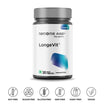
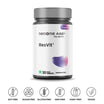
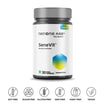
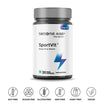
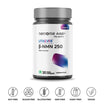
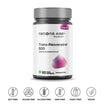
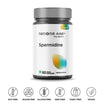
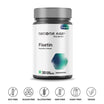
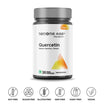
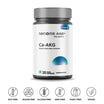
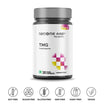
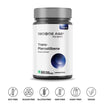







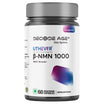



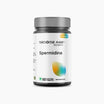











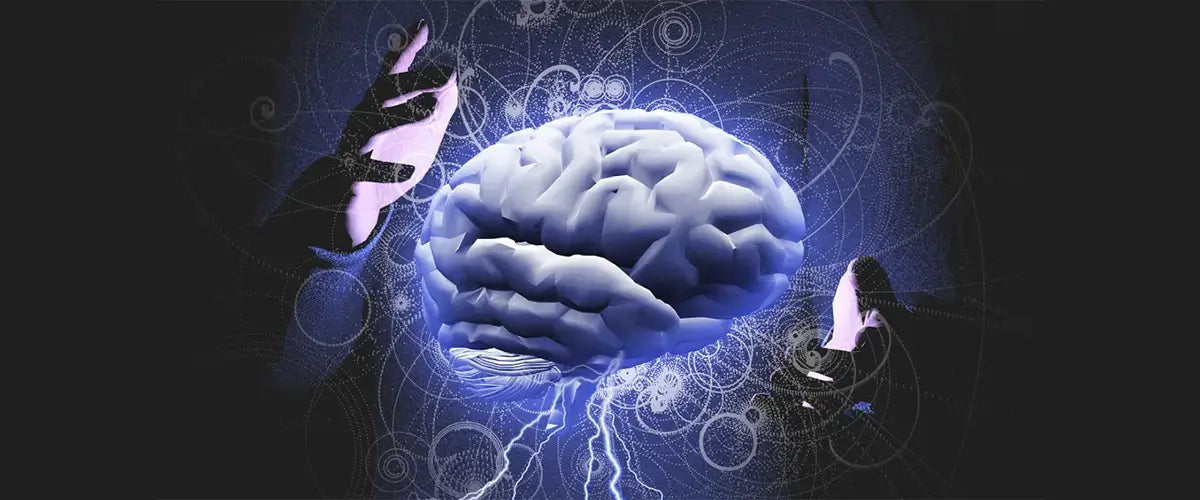

Leave a comment
This site is protected by reCAPTCHA and the Google Privacy Policy and Terms of Service apply.